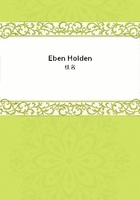
第42章
If I were writing a novel merely I should try to fill it with merriment and good cheer. I should thrust no sorrow upon the reader save that he might feel for having wasted his time. We have small need of manufactured sorrow when, truly, there is so much of the real thing on every side of us. But this book is nothing more nor less than a history, and by the same token it cannot be all as I would have wished it. In October following the events of the last chapter, Gerald died of consumption, having borne a lingering illness with great fortitude. I, who had come there a homeless orphan in a basket, and who, with the God-given eloquence of childhood had brought them to take me to their hearts and the old man that was with me as well, was now the only son left to Elizabeth and David Brower. There were those who called it folly at the time they took us in, I have heard, but he who shall read this history to the end shall see how that kind of folly may profit one or even many here in this hard world.
It was a gloomy summer for all of us. The industry and patience with which Hope bore her trial, night and day, is the sweetest recollection of my youth. It brought to her young face a tender soberness of womanhood - a subtle change of expression that made her all the more dear to me. Every day, rain or shine, the old doctor had come to visit his patient, sometimes sitting an hour and gazing thoughtfully in his face, occasionally asking a question, or telling a quaint anecdote. And then came the end.
The sky was cold and grey in the late autumn and the leaves were drifted deep in the edge of the woodlands when Hope and I went away to school together at HilIsborough. Uncle Eb drove us to our boarding place in town. when we bade him goodbye and saw him driving away, alone in the wagon, we hardly dared look at each other for the tears in our eyes.
David Brower had taken board for us at the house of one Solomon Rollin - universally known as 'Cooky' Rollin; that was one of the first things I learned at the Academy. It seemed that many years ago he had taken his girl to a dance and offered her, in lieu of supper, cookies that he had thoughtfully brought with him. Thus cheaply he had come to life-long distinction.
'You know Rollin's Ancient History, don't you?' the young man asked who sat with me at school that first day.
'Have it at home,' I answered, 'It's in five volumes.'
'I mean the history of Sol Rollin, the man you are boarding with,' said he smiling at me and then he told the story of the cookies.
The principal of the HilIsborough Academy was a big, brawny bachelor of Scotch descent, with a stem face and cold, grey, glaring eyes. when he stood towering above us on his platform in the main room of the building where I sat, there was an alertness in his figure, and a look of responsibility in his face, that reminded me of the pictures of Napoleon at Waterloo. He always carried a stout ruler that had blistered a shank of every mischievous boy in school. As he stood by the line, that came marching into prayers every morning he would frequently pull out a boy, administer a loud whack or two, shake him violently and force him into a seat.
The day I began my studies at the Academy I saw him put two dents in the wall with the heels of a young man who had failed in his algebra. To a bashful and sensitive youth, just out of a country home, the sight of such violence was appalling. My first talk with him, however, renewed my courage. He had heard I was a good scholar and talked with me in a friendly way about my plans. Both Hope and I were under him in algebra and Latin. I well remember my first error in his class. I had misconstrued a Latin sentence. He looked at me, a smile and a sneer crowding each other for possession of his face. In a loud, jeering tone he cried: 'Mirabile dictu!'
I looked at him in doubt of his meaning.
'Mirabile dictu!' he shouted, his tongue trilling the r.
I corrected my error.
'Perfect!' he cried again. 'Puer pulchre! Next!'
He never went further than that with me in the way of correction.
My size and my skill as a wrestler, that shortly ensured for me the respect of the boys, helped me to win the esteem of the master. I leamed my lessons and kept out of mischief. But others of equal proficiency were not so fortunate. He was apt to be hard on a light man who could be handled without over-exertion.
Uncle Eb came in to see me one day and sat awhile with me in my seat. While he was there the master took a boy by the collar and almost literally wiped the blackboard with him. There was a great clatter of heels for a moment. Uncle Eb went away shortly and was at Sol Rollin's when I came to dinner.
'Powerful man ain't he?' said Uncle Eb.
'Rather,' I said.
'Turned that boy into a reg'lar horse fiddle,' he remarked. 'Must 'ave unsot his reason.'
'Unnecessary!' I said.
'Reminded me o' the time 'at Tip Taylor got his tooth pulled,' said he. 'Shook 'im up so 'at he thought he'd had his neck put out o' ji'nt.'